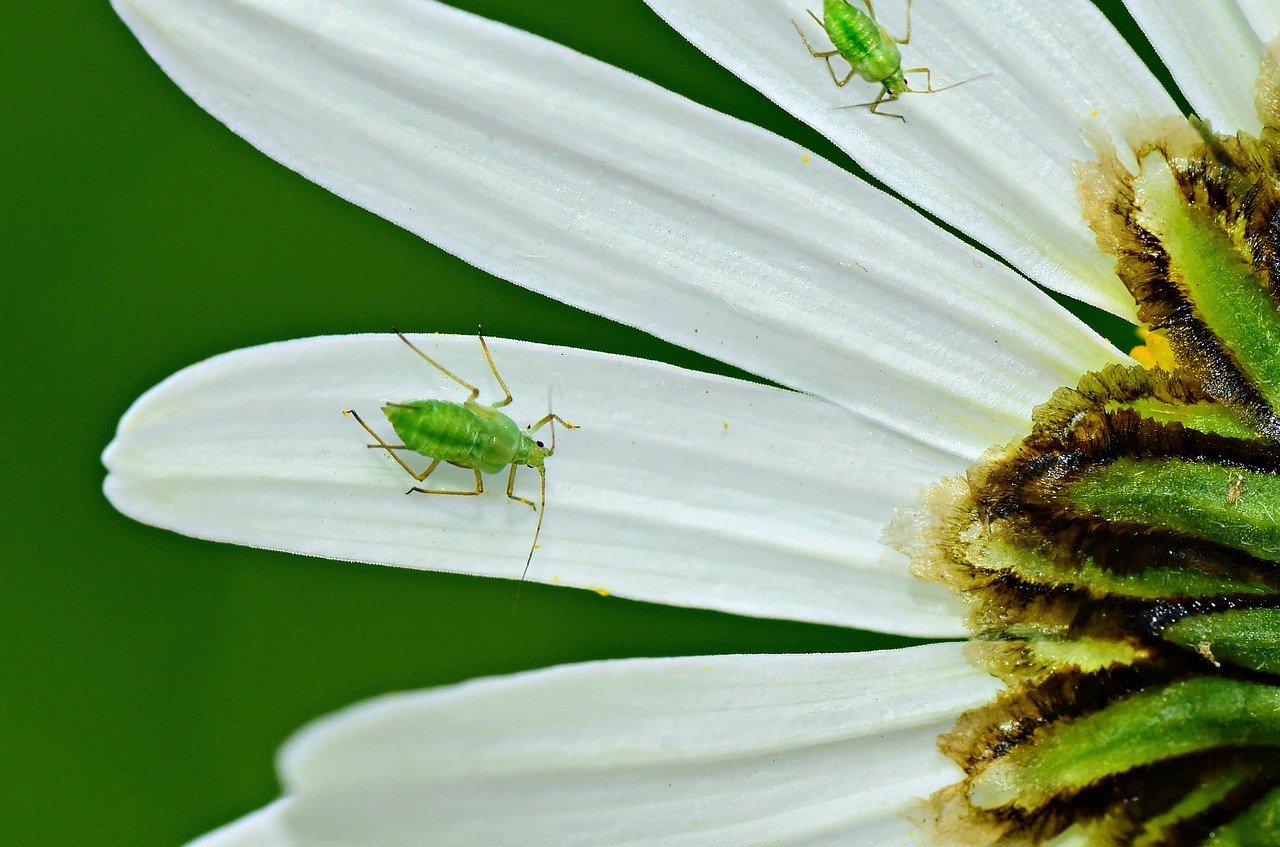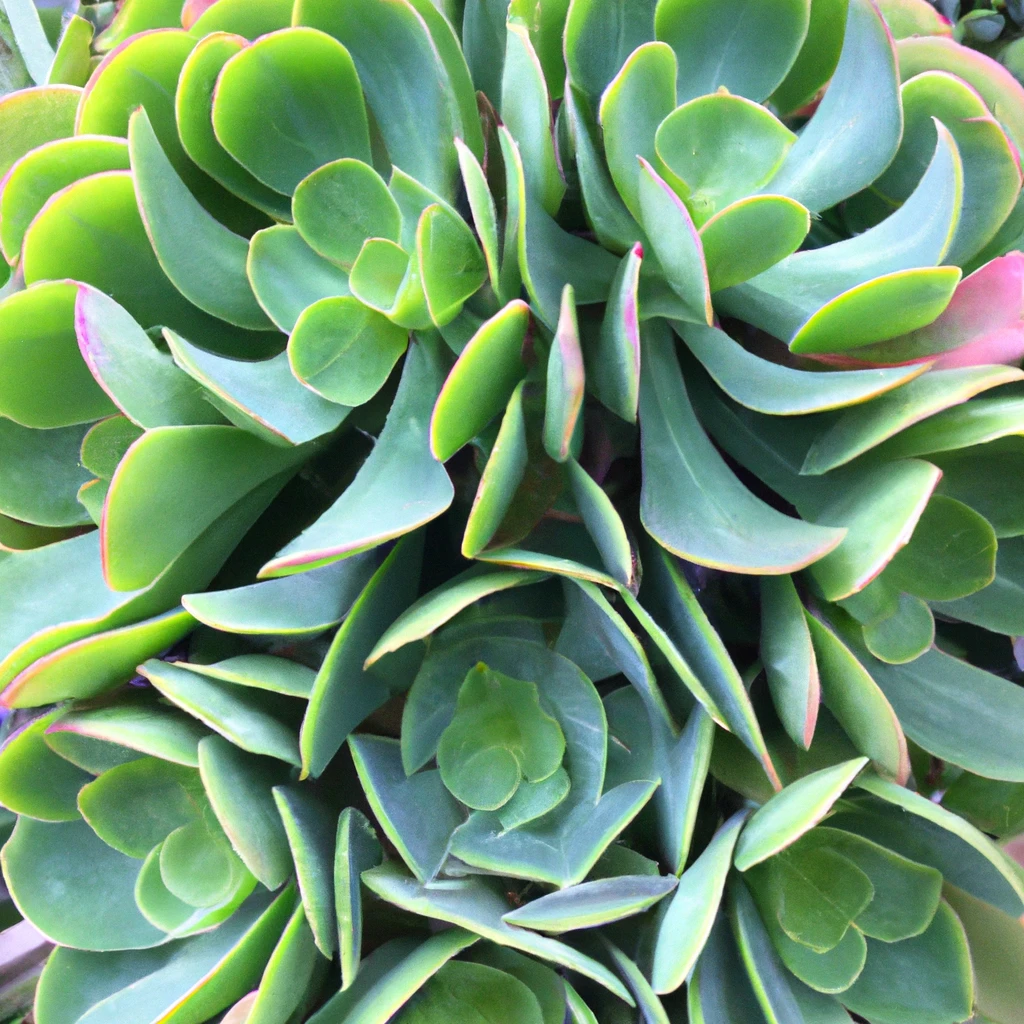Aphids on Succulents
Succulent plant leaves can hold water and they can live in dry weather, succulent plants are easy to take care of. They can live longer than almost any other plant because of this. From the outside, succulents, especially cacti, may look like strong, pest-free plants, but growers who have done this before know that succulents also have pest problems.
Aphids, also known as plant lice, are small, sap-sucking insects that can be found on a wide variety of plants, including succulents. They are typically green or black in color and have a pear-shaped body. Aphids can cause a variety of issues for succulents, such as yellowing or curling of leaves, stunted growth, and the production of sticky honeydew. In large infestations, they can weaken or even kill a succulent.
They can also attract ants, which can further damage the plant. It is important to take action to control and prevent aphid infestations on succulents to maintain their health and beauty.
Identifying Aphids on Succulents
Aphids are small, soft-bodied insects that can range in color from green to black, with some species having a yellow or red tint. They have a pear-shaped body and are typically around 1-3mm in length, two tubes (cornicles) protruding from their back end. They also have two antennae on their head. When looking for Aphids on succulents, check the underside of leaves, along the stem, and around the buds and flowers.
They tend to congregate in large numbers and can often be found in clusters. It is important to note that Aphids can be mistaken for other pests such as spider mites or mealybugs. To distinguish Aphids from other pests, check for the presence of the two tubes (cornicles) protruding from the back end, which are unique to Aphids. Additionally, spider mites are usually red or brown and have a more elongated shape, while mealybugs are usually white and have a more flattened, segmented shape.

The main reasons why aphids are there
- There was no water or light.
- The plant can’t handle heat that is too hot.
- There are too many pesticides and fertilizers on the market.
- Changing the plant’s surroundings by moving it
- When there are a lot of aphids, spring comes.
- Most of the time, these are the signs:
- When random leaves fall off
- Leaves getting honeydew and going yellow
- The moisture is leaving the stem.
- Now you know how to find out if your succulents have aphids and what causes this problem to start and get worse. Let’s take a look at some easy home remedies.
Prevention and Control Methods
- Proper care and maintenance of succulents is important to keep them healthy and less attractive to aphids. This includes providing the appropriate amount of light, water, and fertilizer, as well as ensuring good drainage.
- Regular inspection and cleaning of plants can help to identify and remove small aphid infestations before they become a bigger problem. This includes removing any damaged or yellowed leaves, as well as wiping down the leaves with a damp cloth to remove any honeydew or aphids.
-
Biological control methods:
- Using beneficial insects such as ladybugs and green lacewings can help to control aphid populations. These insects feed on aphids, effectively controlling their numbers.
- Using natural predators such as aphid midges can also help to control aphid populations. These small flies lay their eggs near aphid colonies, and when the eggs hatch, the larvae feed on the aphids.
-
Chemical control methods:
- Using insecticidal soap or neem oil can be an effective way to control aphid populations on succulents. These products are typically safe for use on plants and will not harm beneficial insects.
- Using pesticides can also be effective, but it is important to use them according to the instructions and with caution. It is also important to note that some pesticides can be harmful to beneficial insects, which can lead to a resurgence of aphid populations.
- Safety precautions when using chemicals, such as wearing gloves and a mask, and working in a well-ventilated area to avoid inhaling fumes. Also, when using chemical pesticides, it’s important to follow label instruction and avoid overuse, which can lead to chemical resistance in the pest population.
Spray made of liquid oil and water for washing dishes
Mixing one teaspoon of dish soap, one teaspoon of vegetable oil, and two cups of water is an easy way to get rid of aphids. Pour the mixture into a spray bottle, give it a gentle shake, and then spray it lightly on the affected area or even on both sides of the leaves.
When oil and dishwashing liquid are mixed together, they cover the spiracles, suffocating the aphids. After 3 to 4 hours, wipe the leaves and stem with a soft rag or tissue to get rid of the soapy residue. It will take three days to find out if the home remedies for the succulents worked or not.
Onion-Garlic-Spray
Use a mixture of two medium-sized onions, two garlic cloves, and three cups of water to kill or get rid of aphids (depending on your needs).
You can cut them up very small, or even better, use a blender or food processor. Put the garlic and onion in a container with water and leave it there overnight.
Spray your solution on the plant’s leaves and stem. The smell of garlic and onion keeps the aphids away from the plant. The rest of the solution should be kept in the refrigerator until you need it again. Do this about once a week to keep aphids from eating your succulents and other plants.

Proper Care And Maintenance To Prevent Aphid Infestations
Aphids are a common pest that can cause significant damage to succulents if left unchecked. To effectively control and prevent aphid infestations, a combination of cultural, biological, and chemical control methods can be used. Cultural control methods, such as proper care and maintenance of succulents, and regular inspection and cleaning of plants, can help to keep succulents healthy and less attractive to aphids.
Biological control methods, such as using beneficial insects and natural predators, can help to control aphid populations. Chemical control methods, such as using insecticidal soap or neem oil, can also be effective, but should be used with caution and according to the instructions. It is important to remember that proper care and maintenance of succulents is key to preventing aphid infestations.
Regular inspection and cleaning of plants, as well as providing the appropriate amount of light, water, and fertilizer, can help to keep succulents healthy and less attractive to aphids.
How Can I Prevent Aphids from Infesting My Succulents?
Solving the succulents’ bug attraction mystery is essential to prevent aphids from infesting them. Regularly inspecting the plants for signs of aphid presence, such as sticky residue or distorted leaves, is crucial. Introducing natural predators like ladybugs can help control aphid populations. Providing adequate air circulation, avoiding over-watering, and using organic insecticidal soaps are further effective preventive measures.
Conclusion
Overall, Aphids can be a major issue for succulent owners, but with proper care, regular inspection, and utilizing the right prevention and control methods, it can be managed and prevented.
Succulents must be strong and healthy during the growing season.
Always take off a succulent’s dead leaves to stop aphids and other insects from hiding and breeding in them. It also keeps mould from growing.
Don’t water the succulents with running water because that would kill the plant from getting too much water. You should use a spray instead. If succulents’ soil is always wet, aphids and other pests might be drawn to it.
Don’t use the same soil or put the dead leaves of plants with aphids in it, because it still has insect eggs that will infect your healthy plants or new ones.
If you spray succulents with natural or home remedies, they will keep growing and get healthier. It is safe for people and won’t hurt them in any way, but it will keep aphids away.
How Can I Keep Aphids Away from my Terrarium Succulents?
If you’re wondering how to keep aphids away from your terrarium succulents, choosing the best succulents for terrariums can make a difference. Opt for varieties like haworthia and echeveria, known for their resilience and natural pest resistance. Properly maintaining your terrarium’s humidity levels, inspecting regularly for pests, and using non-toxic aphid controls can also help protect your succulents from these pesky insects.
Can Aphids Kill Succulents
Aphids are known to be harmful to plants as they feed on the plant’s sap. Which can weaken and damage the plant over time.
Succulent plants are no exception to this; aphids can indeed kill succulent plants if left untreated. An aphid infestation on a succulent plant can cause stunted growth, yellowing of leaves, wilting of new growth, and deformities in leaves or stems.
If left unchecked. An aphid infestation can lead to the death of a succulent plant by depriving it of essential nutrients and causing stress. The best way to prevent aphids from killing your succulent plants is by taking early action once you notice signs of an infestation.
Consider using natural pest control methods such as insecticidal soap and neem oil sprays that kill aphids without harming your plant or beneficial insects such as ladybugs that eat pests like aphids. Another solution for repelling aphids is rubbing alcohol mixed with water.
Spray this solution onto affected areas of the plant or directly onto the insects themselves. This will dissolve their protective coating and cause them to dehydrate and die.
Diatomaceous earth is another effective natural method for getting rid of an aphid infestation on your succulent plants. Apply a thin layer around the base of your plants, which will create a barrier that keeps any crawling pests away from them.
While an aphid infestation can harm and potentially kill succulent plants if left untreated. There are various natural solutions available for controlling these pests before they cause too much damage. Using insecticidal soap or neem oil sprays, introducing beneficial insects into your garden space such as ladybugs or lacewings. Or even just spraying with rubbing alcohol mixed with water are all effective methods for dealing with these unwelcome bugs.

